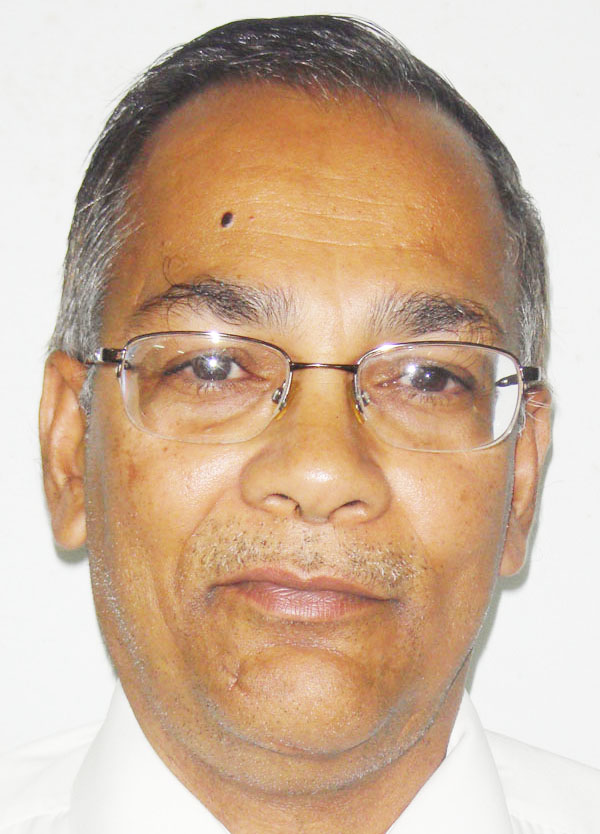The Audit Office of Guyana will be auditing the sale of the first three million barrels of Guyana’s oil to ensure that it is transparent as government’s explanation of the process does not make sense, Auditor General Deodat Sharma has said.
“There are a lot of things that just don’t make sense because you have an explanation that there was no procurement and no law was breached but a sale is a service and it is a procedure,” Sharma told Stabroek News yesterday.
“So, we will audit the process to ensure it is transparent. The Audit Office will look at the whole process,” he added.
Declaring that no procurement laws were broken in the selection of companies to come here to bid on Guyana’s first three lifts of oil from the Liza-1 field, the Department of Energy (DE) on Monday defended its decision to secretly invite selected bidders. Government’s interface with the press came after scathing criticisms over the secrecy to bring in bidders and then unilaterally decide which would get to buy the 3 million barrels of crude.
Last Friday, financial news service Bloomberg reported that government had sent a letter to refiners around the globe inviting them to bid for three million barrels of Liza Blend crude, which it will start exporting next year. “The catch is that the buyer must take the unusual role of handling ‘all operating and back office responsibilities’ related to exporting the crude,” the report said, citing a document it had seen. Oil traders from Houston, Geneva and London, numbering about half a dozen, were expected to begin bidding on Monday, the report said.
There was no prior announcement of the planned bidding, resulting in the DE on Sunday issuing a statement to explain that it was undertaking a two-step process: an initial direct sale in the short term to selected bidders to set national benchmarks for selling Guyana’s portion of its crude in the future, followed by a public request for proposals (RFP) for marketing services for Guyana’s crude.
The statement only came after strong criticisms of the DE’s silence on the Bloomberg news item and the oil sales.
A statement issued by the DE said criteria for selection of the bidders included international oil companies (IOCs) having a global refining footprint and integrated oil value chain, as well as being in a position to support all operating procedures of the three cargoes.
“It is a sale and it doesn’t require going through a procurement process,” Bynoe emphasised at a news conference on Monday. “When we go to an RFP (Request For Proposal), then that will have to go through the full procurement process,” he further noted, while referencing the second phase where the DE will be going to market with a request for proposal inviting all companies that have an interest to bid for the marketing of Guyana’s portion of oil on a longer term basis.
The DE said given Guyana’s inexperience and the impending early date of the first lifts, an introduction phase of the grade is “more advantageous to Guyana” at this time.
Based on expert advice, it noted, other considerations included that the full extent of the quality of the crude is not yet known as it usually takes several lifts to determine crude only quality and the cost of refining. It also noted that the true economics of the Liza grade is yet to be determined and that Guyana needs to establish a quality and quantity standard.
When questioned about who selected the IOCs invited to participate in the process, Bynoe said that it was his government and that it was on the advice of its specialist consultants, before noting that there are some things that they may not be able to discuss. “We are aware that there are a number of interests in Guyana’s petroleum sector. We are aware that there are some matters which would require a discussion with the media before, others that would require a discussion during and others that we may not be able to discuss,” he noted.
The Auditor General said that Bynoe’s explanation of the sale and it not requiring procurement has to be further explained and that the Audit Office will also be looking for expert advice to guide its investigations. “I don’t have the expertise at office for these but I will be seeking it because much needs to be clarified,” he said. “They have not answered many questions. Who is going to sign off on the sale and who gets to select which company and how?” he questioned. “I think it is because the Department was set up so late that they are not up to date to with the procurement regulations and that sort of thing and it is why they would say that. Certain things just don’t make sense,” he stressed.






